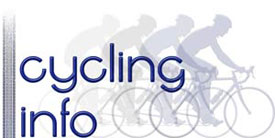One fact I have noticed since I have resumed my regular cycling training schedule is that my body seems to need an extra 30-45 minutes sleep. Last week I cycled just over 200 miles, and I had difficulty getting up at 6.00am. Most days I would sleep in to 6.30 or 7.00am. This was despite going to sleep at 11pm rather than 11.30pm. I’m not sure what the official medical view is. But, from personal experience, it seems that increased levels of exercise seem to require an extra 30 -45 mins of sleep. I don’t think this is just me being lethargic about getting up; the body seems to need more recovery after exercising and eating more.
I know of some professional athletes who say they take up to 10 hours of sleep. I wouldn’t want to do this because I don’t feel need, and it would seriously curtail the amount of time in the day!
Benefits of Exercise and Sleep.
On the other hand, I think exercise can definitely help you sleep better. If you do not exercise, it is more likely that you will suffer from insomnia. After cycling hard for 3-4 hours, I usually have no difficulty falling asleep, the difficulty is just getting up in the morning.
- I think the optimum for sleep would be a light exercise pattern of cycling for about 50-100 miles a week.
- For people who have difficulty sleeping, definitely taking up exercise like cycling would help improve sleep patterns.
Race Across America
In extreme distance events like the Race across America, the winning cyclists often sacrifice their sleep to be able to win. This must be a big sacrifice to sleep for only 5 hours, after cycling all day. I guess it is only for 9 – 10 days, and wouldn’t be sustainable in the long term.
24 Hour Race
For a 24 hour race, you need to keep awake for 24 hours. It is said that it is easier for the competitors to keep awake rather than their helpers. I guess when you are moving and cycling you are less prone to sleep. Although, in ultra distance races, you do hear of people falling asleep whilst cycling – a very dangerous phenomena.
Sleep Debt
Research suggests the average adult needs a basic 7-8 hours sleep. However, if we get into sleep debt (i.e miss our ‘base level of sleep’ we need more time later to ‘catch up’ For an athlete getting into sleep debt is definitely damaging for their performance. Sleep debt can increase the risk of developing illness and experiencing symptoms of ‘overtraining’.
Related
- How much sleep do we need? sleep foundation
- How to avoid overtraining

No comments yet.